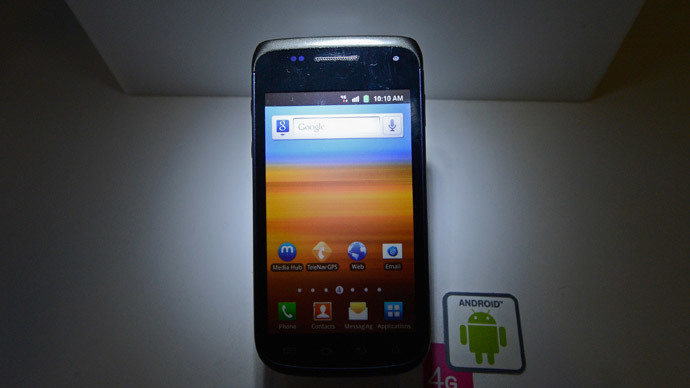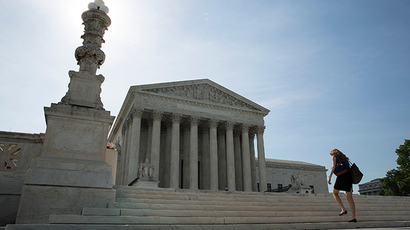No peeking!: New Android device encryption tells police to keep out

Technology giant Google has developed a new version of its Android operating system, featuring data encryption that is said to automatically foil investigation by law enforcement.
READ MORE: Governments spy on journalists with weaponized malware – WikiLeaks
Google announced on Thursday that its next-generation installment of Android – the world’s most popular mobile operating system, with roughly 1 billion users – will encrypt all user data on smartphones, preventing law enforcement from accessing personal data.
Niki Christoff, Google’s spokeswoman, said the company has
offered encryption on Android devices for over three years, but
few users knew how to use the feature.
“As part of our next Android release, encryption will be
enabled by default out of the box, so you won’t even have to
think about turning it on,” said Christoff, as reported by the Washington Post.
The new Android system will ensure that only somebody who enters
a device’s password will be able to see the pictures, videos and
emails stored on the smartphone.
Google officials said they have been working on the new
encryption tool for months to make sure their products are more
resistant to government snooping, especially since the
revelations of relentless surveillance conducted by the National
Security Agency (NSA).
READ MORE: Snowden: If you live in New Zealand, you’re being watched
In the wake of the NSA leaks, technology companies have battled
allegations that they colluded with government efforts to collect
user data.
Law enforcement officials, meanwhile, have warned that the new
protections on electronic devices will make it much harder for
them to prevent and solve crimes.
The announcement comes five months after the US Supreme Court’s
unanimous decision in Riley v California ruled law enforcement needed a search warrant to
collect information stored on cell phones.
Chief Justice John G. Roberts Jr. wrote that should the police
confront an emergency situation they may be entitled to search
the phone under a separate strand of Fourth Amendment law, one
concerning “exigent circumstances.”
READ MORE: Pentagon increasing surveillance to prevent another Snowden-style leak














